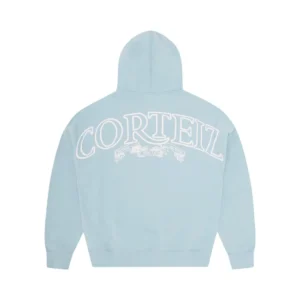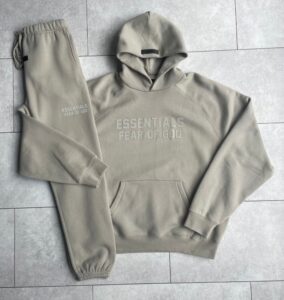
IDigitize
Embroidery digitizing transforms digital artwork into stitch files that embroidery machines use to create precise, high-quality designs on fabrics. A critical aspect of this process is ensuring the digitized files are compatible with your specific embroidery machine, as different machines require distinct file formats. iDigitize provides expert digitizing services that support a wide range of file formats, ensuring seamless integration with your equipment. This blog explores the file formats supported by Idigitising, their uses, and how our services ensure compatibility for businesses, artisans, and hobbyists looking to create professional embroidery.
Why File Formats Matter in Embroidery Digitizing
Embroidery machines rely on specific file formats to interpret stitch instructions, including stitch types, paths, and color sequences. Using the wrong format can result in machine errors, misaligned designs, or failed production, wasting time and materials. iDigitize tailors files to match your machine’s requirements, ensuring smooth operation and high-quality results. Understanding the supported file formats helps you choose the right one for your machine and project, maximizing efficiency and precision.
Common File Formats Supported by iDigitize
Idigitising supports a comprehensive range of file formats to accommodate various embroidery machines and project needs. Below are the most common formats we provide, along with their applications and compatibility:
1. DST (Data Stitch Tajima)
-
Description: A widely used format developed by Tajima, DST is a universal standard for commercial and industrial embroidery machines. It contains stitch data but does not store color information, relying on the machine or software to assign thread colors.
-
Uses: Ideal for logos, uniforms, and large-scale designs on apparel, hats, or bags. Commonly used in professional embroidery settings.
-
Compatibility: Tajima, Brother, Barudan, and most commercial machines.
-
Benefits: Broad compatibility makes it versatile for bulk production. Compact file size ensures efficient machine processing.
-
Considerations: Requires color setup in your machine or software. Ensure your design’s stitch count fits within your machine’s limits.
2. PES (Brother Embroidery Format)
-
Description: Developed by Brother, PES is a popular format for home and semi-professional embroidery machines. It includes stitch data and color information, making it user-friendly for detailed designs.
-
Uses: Perfect for home décor, personalized gifts, and small business projects like monograms or custom apparel.
-
Compatibility: Brother, Baby Lock, and some Bernina machines.
-
Benefits: Stores color data, simplifying thread setup. Supports complex designs with multiple colors.
-
Considerations: Check your machine’s PES version compatibility (e.g., PES v6, v10), as older machines may not support newer versions.
3. JEF (Janome Embroidery Format)
-
Description: Designed for Janome machines, JEF contains stitch and color data, optimized for precise embroidery on home and professional machines.
-
Uses: Suitable for quilts, home décor, and custom apparel projects, such as monogrammed pillows or team uniforms.
-
Compatibility: Janome, Elna, and some Kenmore machines.
-
Benefits: High precision for detailed designs. Includes color information for easy thread matching.
-
Considerations: Limited to Janome-compatible machines. Verify hoop size and stitch count limits for your model.
4. EXP (Melco/Bernina Embroidery Format)
-
Description: A format used by Melco and some Bernina machines, EXP is a stitch-based format that supports precise control for commercial embroidery.
-
Uses: Ideal for intricate logos, jacket backs, and promotional items requiring high detail.
-
Compatibility: Melco, Bernina, and some commercial machines.
-
Benefits: Offers precise stitch control for complex designs. Widely used in professional settings.
-
Considerations: May not include color data, requiring manual thread setup. Confirm compatibility with your machine model.
5. VP3 (Husqvarna Viking/Pfaff)
-
Description: Developed for Husqvarna Viking and Pfaff machines, VP3 is a modern format that stores stitch, color, and design metadata, ensuring high-quality embroidery.
-
Uses: Great for fashion, home décor, and personalized items like quilts or custom shirts.
-
Compatibility: Husqvarna Viking, Pfaff, and some Singer machines.
-
Benefits: Comprehensive data storage simplifies setup and ensures accurate reproduction of complex designs.
-
Considerations: Specific to Viking and Pfaff machines. Check your machine’s hoop size and software compatibility.
6. XXX (Singer Embroidery Format)
-
Description: Used by older Singer machines, XXX is a stitch-based format that supports basic to moderately complex designs.
-
Uses: Suitable for home embroidery projects like monograms, small logos, or decorative patterns on apparel.
-
Compatibility: Singer and some older Compucon machines.
-
Benefits: Reliable for simple designs and compatible with legacy machines.
-
Considerations: Limited support for complex designs or newer machines. Confirm your machine’s specifications.
7. Other Formats (e.g., CND, ART, PCS)
-
Description: iDigitize also supports less common formats like CND (Melco), ART (Bernina Artista), and PCS (Pfaff) for specific machines or legacy systems.
-
Uses: Niche applications for older machines or specialized projects, such as custom patches or vintage designs.
-
Compatibility: Varies by machine brand and model (e.g., older Bernina or Pfaff machines).
-
Benefits: Ensures compatibility for users with unique or older equipment.
-
Considerations: Less common formats may require additional machine setup or conversion software.
How iDigitize Ensures File Compatibility
Our digitizing process is designed to deliver files that work seamlessly with your embroidery machine:
-
Customized Files: We create files in your specified format (e.g., DST, PES, JEF), tailored to your machine’s brand, model, hoop size, and stitch count limits.
-
Stitch Optimization: We select appropriate stitch types (e.g., satin, fill, running) and optimize paths to ensure smooth machine operation and high-quality results.
-
Fabric Customization: Files are adjusted for your project’s fabric (e.g., cotton, knits, leather), preventing issues like puckering or distortion.
-
Test Stitch-Out: We perform a test stitch-out on a similar fabric to verify design accuracy and machine compatibility, making adjustments as needed.
-
Prompt Delivery: Files are delivered within hours for simple designs or a day for complex ones, ready for immediate use on your machine.
Benefits of Choosing iDigitize for File Formats
Partnering with Idigitising offers several advantages for your embroidery projects:
-
Broad Compatibility: Support for a wide range of formats ensures your files work with virtually any embroidery machine, from home models to industrial systems.
-
Precision and Quality: Optimized files maintain design clarity, color accuracy, and durability, enhancing the professionalism of your embroidered products.
-
Cost-Effective: Reusable, error-free files reduce material waste and machine downtime, saving costs for small or large projects.
-
Fast Turnaround: Quick delivery supports tight schedules, ensuring your machine is ready to produce for events, client orders, or launches.
-
Dedicated Support: Our team confirms your machine model, format, and project details to deliver tailored files that meet your needs.
Tips for Choosing the Right File Format
-
Check Your Machine Manual: Verify your machine’s supported formats (e.g., PES for Brother, JEF for Janome) and specifications like hoop size or stitch count limits.
-
Provide Accurate Details: When ordering from iDigitize, specify your machine brand, model, and preferred format to ensure compatibility.
-
Test Files: Perform a test stitch-out on a similar fabric to confirm the file works with your machine before full production.
-
Consider Software: Some formats (e.g., DST) may require color setup in your machine or embroidery software, so plan accordingly.
-
Ask for Guidance: If unsure about your machine’s format, contact our team for assistance in selecting the right option.
Conclusion
Choosing the right file format is essential for successful embroidery, and iDigitize supports a wide range of formats—DST, PES, JEF, EXP, VP3, XXX, and more—to ensure compatibility with your embroidery machine. Our expert digitizing services deliver precise, production-ready files tailored to your machine and project needs, from logos on uniforms to designs on quilts. With fast turnaround, cost-effective solutions, and dedicated support, iDigitize empowers businesses, artisans, and hobbyists to achieve professional embroidery results with ease. Partner with us to unlock the full potential of your embroidery machine and bring your designs to life.
FAQs
What file formats does iDigitize support for embroidery machines?
We support DST, PES, JEF, EXP, VP3, XXX, and niche formats like CND, ART, and PCS, tailored to your machine’s requirements.
How do I know which file format my machine needs?
Check your machine’s manual for supported formats (e.g., PES for Brother, JEF for Janome) or contact iDigitize for assistance.
Can iDigitize create files for older embroidery machines?
Yes, we support formats like XXX or CND for legacy machines, ensuring compatibility with older models.
How does iDigitize ensure file compatibility?
We tailor files to your machine’s brand, model, and specifications, performing test stitch-outs to verify accuracy and performance.
How fast can I receive a digitized file from iDigitize?
Simple designs are delivered within hours, complex ones within a day, supporting tight project deadlines.
What details should I provide for digitizing?
Submit your artwork, fabric type, machine model, file format, design size, placement, and color preferences for a customized file.



